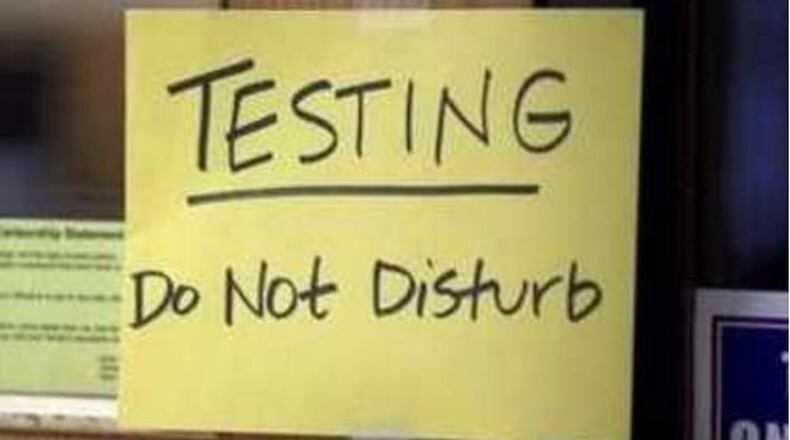Jennifer O’Neal Schiess is a partner at Bellwether Education Partners and former senior advisor on public education for the Texas Legislature.
In a guest column, Schiess contends that now is not the time to roll back testing in Georgia. A former high school teacher, Schiess holds a bachelor’s degree in English from Duke University, a master’s degree in education from Vanderbilt University, and a master’s degree in public policy from Duke University.
Under federal law, Georgia must administer its Milestones standardized tests in third grade through high school every year. However, the U.S. Department of Education waived the requirement in the spring due to COVID-19 school closures. In July, the state submitted a request to Education Secretary Betsy DeVos to extend the waiver into the next school year.
By Jennifer O’Neal Schiess
As Generation Z says, it’s just too soon. Georgia’s Gov. Brian Kemp and State School Superintendent Richard Woods have requested a federal waiver from testing for the coming school year.
But information about how our schools support students is more critical now than ever as we navigate a pandemic that has already upended two school years. Why stop measuring schools’ progress toward high expectations for student learning?
As justifiable as waiving testing may have been last year given the enormity and rapid pace of disruption resulting from the pandemic, a waiver request is the wrong move. Continued challenging circumstances, including logistics around virtual learning, should not translate to a lack of transparency about what students are or are not learning.
But if Georgia does receive a waiver, Georgia's schools will lose another year of data that represents the only available measure of performance for every student in every school — data that can expose inequities in outcomes for students and drive decisions about where to target resources.
Credit: Toby Jorrin
Credit: Toby Jorrin
While the immediate impact of COVID on student learning is largely unknown, researchers predict students could enter the next school year missing 30% to 50% of what they otherwise would have typically learned. For students with learning gaps prior to the shutdown — disproportionately low-income students, students of color, students with disabilities, and English learners — learning lost to COVID piles on top of any prior unfinished learning. The cumulative impact could translate into truly devastating disruption to the educational pathways for our most vulnerable students.
How schools respond to those widened gaps in the next school year will mean the difference between a temporary impact or a generational one. Students served poorly now will themselves be held accountable through diminished opportunity and potentially lifelong consequences of inadequate educational preparation for an opportunity-rich adulthood.
By many accounts, distance learning this past spring has been a bumpy ride. A survey from the American Institute of Research highlights that the quality of educational resources and time spent doing distance learning depends on where students live: 25% of districts surveyed provided more than three hours of instruction to students in kindergarten through second grade. Another 23% reported an hour or less of instruction per day.
Students in low-income districts spent less time learning new content and more time reviewing content taught earlier in the year, than students in wealthier districts. Given that attendance requirements varied widely and vast numbers of households lack internet access, going forward, we simply cannot afford to forgo collecting data and understanding the quality of instruction students receive.
Assessment and accountability systems are not perfect. For one, they don’t account for everything that matters for student success, such as social emotional learning, learning in all subject areas, and the breadth of learning a student achieves in a school year. In the short term, Georgia should consider amending how the data are used, how schools are held accountable, and for what, in order to respond to shifting needs and priorities brought on by the pandemic. In the longer term, there is undoubtedly room to improve the rigor and relevance of these systems, as well as how we account more holistically for student learning and development.
But now is not the time to abandon the only data that provides transparency into how every public school is doing and shines a light on equity. Luckily, the U.S. Department of Education is telling states “not so fast” when it comes to waivers.
We were all caught off guard this spring, and teachers, schools, and districts scrambled to make the best of an impossible situation. In many cases, they were not well set up to succeed. But we are not off guard now, and our education system will be defined by how it moves forward for each and every student.
About the Author
The Latest
Featured




